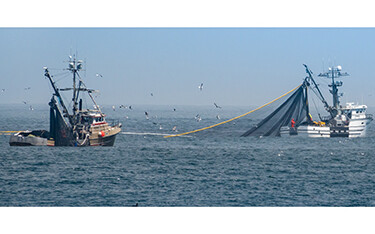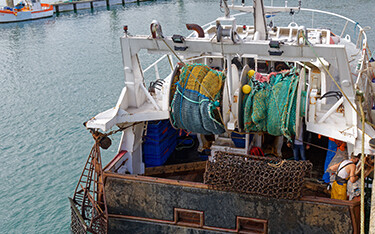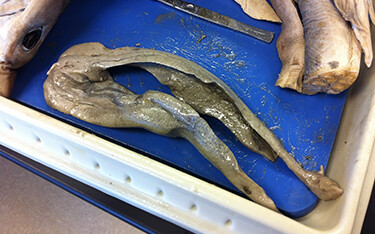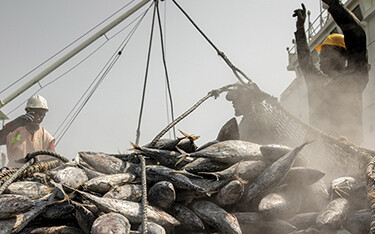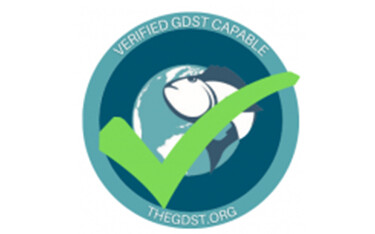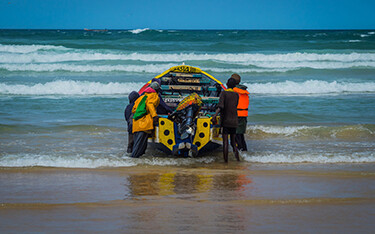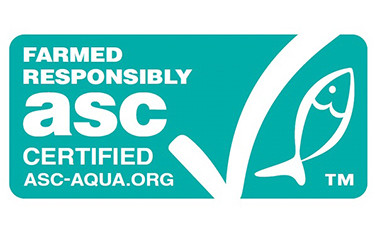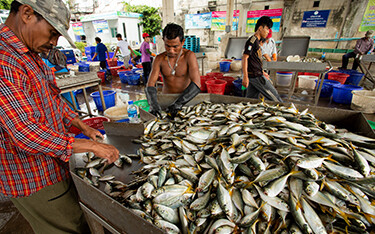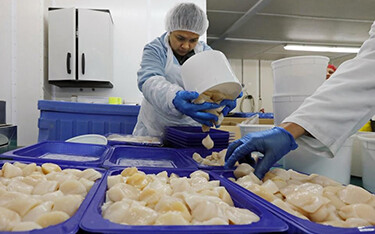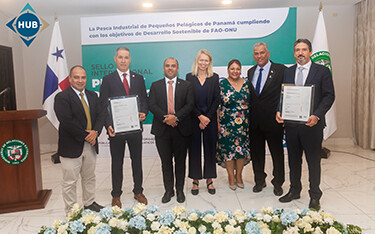Emma Desrochers is a freelance journalist based in Waialua, Hawaii, who writes about fisheries and sustainability. She graduated from Yale University in June 2021 with an undergraduate degree in environmental studies and mechanical engineering. She has contributed to the environmental conservation field through internships located in Ecuador, Thailand, and Hawaii.
Author Archive
The California market squid purse-seine fishery, one of the largest commercial squid fisheries by tonnage in the United States, has started the Marine Stewardship Council assessment process.
A completion of an initial draft of the MSC assessment report found the fishery preliminarily qualified for certification. Three seafood companies; Del Mar Seafoods, Silver Bay Seafoods, and Lund’s Fisheries, as well as supplier Sun Coast
… Read MoreThe U.N. Food and Agriculture Organization (FAO) has increased commitment to its Agreement on Port States Measures (PSMA) by reaching 100 states committing to the agreement to combat illegal, unreported, and unregulated (IUU) fishing.
The FAO estimates that globally, one in every five fish caught annually is from IUU fishing. Combatting IUU fishing aids national, regional, and global efforts for sustainable fisheries and is part of
… Read MoreSharks are endangered and continue to be threatened especially by the cosmetic industry, according to the Rob Stewart Sharkwater Foundation (RSSF).
The RSSF works with leading shark and ocean conservation groups globally to change laws and public opinions to save the world’s sharks and oceans. Shark Free is the initiative behind the survey to remove shark ingredients from consumer and industrial products.
“Nearly 200 companies,
… Read MoreThe Ocean Foundation (TOF) and the United Nations Food and Agriculture Organization (FAO) have launched HarvestStrategies.org to provide information on current developments and implementations about global harvest strategies.
”HarvestStrategies.org is the culmination of years of collaboration among governments, fishers, scientists and civil society to demystify the inner workings of this innovative and effective approach to ensuring a
… Read MorePacifical has become the first seafood industry platform to pass the new Global Dialogue on Seafood Traceability’s (GDST) capability test.
GDST was established in 2017 as an international platform to create the first global seafood traceability standards. The new capability test verifies if software or online platforms can deliver on promises of GDST compatibility.
Pacifical is a global tuna market development company created to handle the
… Read MoreResearch by the FISH Safety Foundation, commissioned by The Pew Charitable Trusts, found more than 100,000 fishing-related deaths occur annually, or the equivalent of around 300 fisher deaths per day.
The New Zealand-based FISH Safety Foundation is an independent non-profit "committed to providing relevant practical education, access to resources and promoting a positive safety culture in the global fishing industry." It said the study,
… Read MoreThe Aquaculture Stewardship Council (ASC) has released its first annual report analyzing efforts made by the organization in 2021 to expand into new markets and improve the accessibility of the certification.
Established in 2010 as an independent nonprofit organization, the ASC developed global aquaculture standards that aim to use market mechanisms to create value in transforming aquaculture towards environmentally sustainable and socially
… Read MoreA new research paper has criticized alleged shortcomings in the recent addition of a social component and remit to fishery improvement projects.
International Transport Workers' Federation Fisheries Section Fisheries Expert Chris Williams, along with University of Nottingham Assistant Professor and Rights Lab Associate Director Jessica Sparks, described their major findings in a SeafoodSource op-ed in September 2022.
Their
… Read MoreBased in Fall River, Massachusetts, U.S.A, Atlantic Capes Fisheries has become the first company to achieve Best Seafood Practices (BSP) certification for its supply chain. The company processes more than 20 percent of U.S scallop landings.
BSP is a certification program developed by the Global Seafood Alliance (GSA) to provide assurance that wild seafood products were harvested and processed in ethical and responsible ways. It is also the
… Read MoreThe Panama small-pelagic fishery, the first fishery improvement project (FIP) to enter the MarinTrust Improver Program in 2015, has now passed the full MarinTrust fishery assessment and the fishmeal and fish oil production sites that have been sourcing from the fishery have achieved MarinTrust certification.
“This recognition is the result of more than seven years of hard work in the fishing sector and an indication that our nation
… Read More






